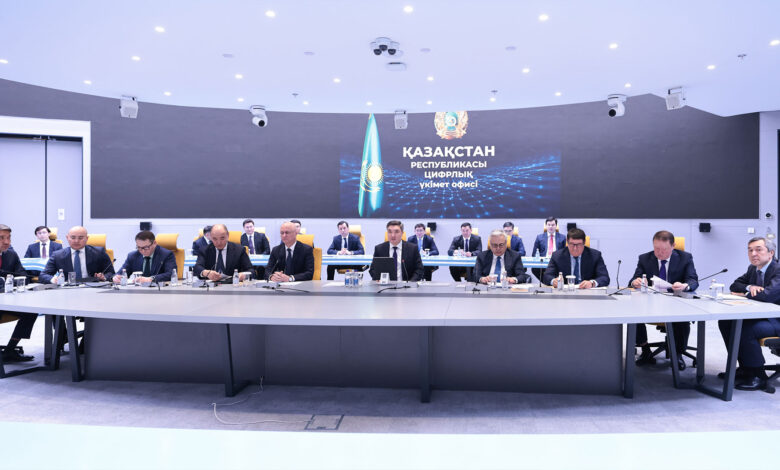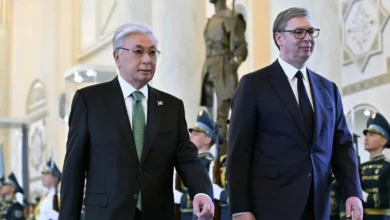Prime Minister Olzhas Bektenov Emphasizes Investment Attraction as a Key Priority
Prime Minister Olzhas Bektenov held a high-level meeting to review the progress of President Tokayev’s directives on attracting foreign investments into Kazakhstan’s economy. The discussions focused on accelerating large-scale investment projects, addressing systemic barriers to improving the country’s investment climate, and enhancing policies to create a more favorable environment for investors.

Representatives from the Ministry of Foreign Affairs and Kazakh Invest provided updates on the country’s investment activity and the factors influencing its dynamics. In 2024 alone, Kazakhstan launched 230 investment projects worth 1.85 trillion tenge. The Investment Headquarters helped resolve 115 investor-related issues, unlocking over $50 billion worth of projects.
A targeted approach is being implemented to attract investors in priority sectors where Kazakhstan has a competitive edge. The government has identified the top 10 industry-leading companies for negotiations on specific investment opportunities. The strategy now follows a “demand-driven investment” model, considering economic needs, regional advantages, and other factors.
Notably, productive discussions have taken place with major Chinese agribusiness firms. Fufeng Group is set to begin constructing a $350 million monosodium glutamate plant in Zhambyl Region, utilizing deep corn processing. Meanwhile, Dalian Hesheng Holding Group will launch construction this summer on a $650 million wheat processing facility in Akmola Region. The government is actively working with these companies to ensure favorable conditions, including infrastructure and streamlined administrative procedures.
Additionally, 20 strategic projects with a total investment volume of $12 billion have been identified, covering key sectors such as agriculture, energy, industry, and construction materials. Agreements on 14 projects are expected to be signed this year, while construction work will begin on 13 projects, and design documentation will be developed for another 16.
The meeting also addressed delays in projects agreed upon during official visits and negotiations. Prime Minister Bektenov specifically questioned the implementation progress in Almaty, Aktobe, Atyrau, and Zhambyl regions, as well as in the cities of Astana and Shymkent. Ministers of healthcare and trade were also called upon to report on their efforts.
“The measures taken by local governments to attract investments have not fully unlocked regional potential. Economic opportunities remain underutilized. Investment efforts must be carried out at all levels of local administration, including district governors,” Bektenov instructed.
To enhance accountability, new performance indicators will be introduced for regional and ministerial investment efforts. A key tool for monitoring projects will be the new National Digital Investment Platform, which currently tracks 1,159 projects. The database will be regularly updated in cooperation with Atameken, Kazakhstan’s business chamber, and verified by local authorities.
Challenges remain, including infrastructure shortages, bureaucratic hurdles in permit issuance, and long delays in land allocation. However, the government has taken steps to resolve these issues efficiently.
“At the expanded government meeting, the President emphasized that investment attraction is a critically important issue requiring swift action without excessive bureaucracy. Government agencies and especially local administrations must personally oversee project implementation. Governors and ministers should treat this as a top priority and address investor concerns promptly,” Bektenov stressed.
The Prime Minister assured that investment efforts remain under his direct supervision.



